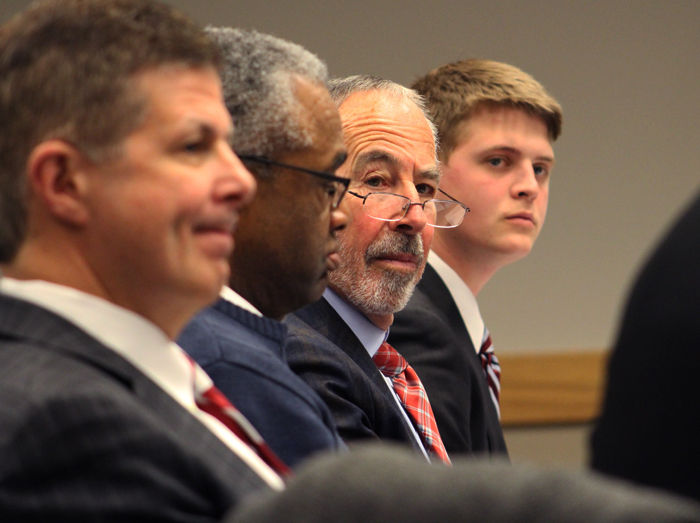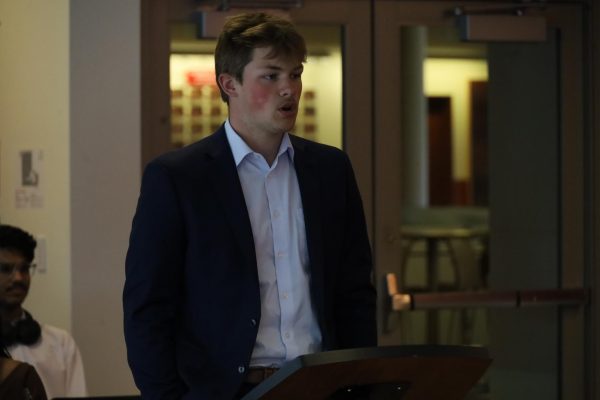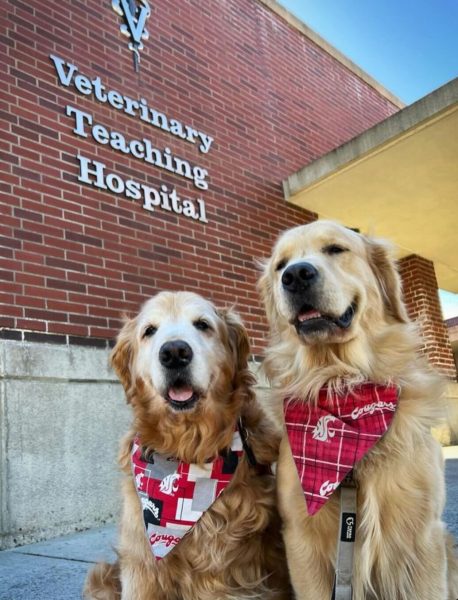Regents select new WSU president
March 25, 2016
Kirk Schulz, current president of Kansas State University, accepted the position of WSU president Friday after the Board of Regents broke for an intermission to call and offer him the job.
Mike Worthy, chair of the Presidential Search Advisory Committee, left the room after the board voted to authorize him to contact Schulz, who was at that point still being referred to as “candidate C,” with the position offer.
Schulz’s wife Noel will join WSU faculty in the College of Engineering. Schulz is expected to make a visit to the WSU Pullman campus sometime next week, per his phone conversation today with Worthy.
Worthy said Schulz was “proud to accept our offer” and “willing to serve,” when he returned from the call.
Interim President Dan Bernardo said Schulz’s qualifications align with what the university requires in its new president.
“He has significant experience at a land-grant university,” Bernardo said. “The fact that he’s an engineer is a real plus for us because that’s an area we need to continue to build out at WSU.”
Bernardo also expressed high regard for Schulz’s leadership skills and the work he has done in his current position.
“I do know his reputation, I do know he’s done an excellent job there,” Bernardo said. “Very much a transformational leader.” He added that KSU has a similar look and feel to WSU, which he feels will aid Schulz and the university in the transition.
The Board of Regents’ meeting room at WSU Tri-Cities was full, and extra chairs were brought in before the meeting started to accommodate the influx of people present. Regents said earlier in the week that the president could be announced during Friday’s meeting.
Worthy said he was “highly confident” the search committee complied with president search regulations, despite concerns the search was too private. The board held executive sessions on March 16 and 22 to interview candidates and discuss their merits.
Legal counsel was present during the sessions to ensure the board adhered to open meeting regulations, Worthy said.
During discussion of the presidential candidates at Friday’s meeting, board members were instructed to refer to the three finalists as “A,” “B” and “C.”
Each board member in turn expressed support of a candidate, except student regent Jansen VanderMeulen, who abstained from the discussion in accordance with state law which prohibits student regents from participating in personnel decisions.
The closest the board came to divulging identifying information about a candidate occurred when one board member referred to candidate “C” as “he.” Schulz received unanimous support from board members’ testimony during discussion.
Most board members expressed satisfaction with the search process and candidates. Several said in contrast to the last presidential search, in which Elson S. Floyd was the obvious choice, it was difficult to decide between candidates.
Schulz released a statement on Friday reflecting on his time at Kansas State as the highlight of his career in higher education.
“Noel and I have thoroughly enjoyed our 7 years at Kansas State,” he wrote. “It has been an exciting time to be a Wildcat and part of the K-State family.”
Schulz wrote he will continue to serve as Kansas State president through mid-May and will transition to WSU in mid-June.
The Kansas State University Office of the President declined to comment at this time.
In addition to selecting Schulz as president, the Board of Regents approved the schematic designs for the Elson S. Floyd Cultural Center and the WSU Tri-Cities Student Union Building, and the design and construction of the Museum of Art expansion project.
“What strikes me about all three of these that we just approved is that they are a symbol of how we work together,” regent Laura Jennings said.
Regents also approved amendments to the Washington Administrative Code which give the university sole discretion to decide whether off-campus conduct adversely affects the university community, in which case it falls under the jurisdiction of student conduct standards.
The amendments also extend jurisdiction of student conduct standards to conduct occurring in connection with university-sponsored activities, including transit to or from the activity.
The board paid homage to Floyd in two separate actions. It approved naming the cultural building the Elson S. Floyd Cultural Center, and conferred an Honorary Doctorate of Philosophy Degree to the former president.




















